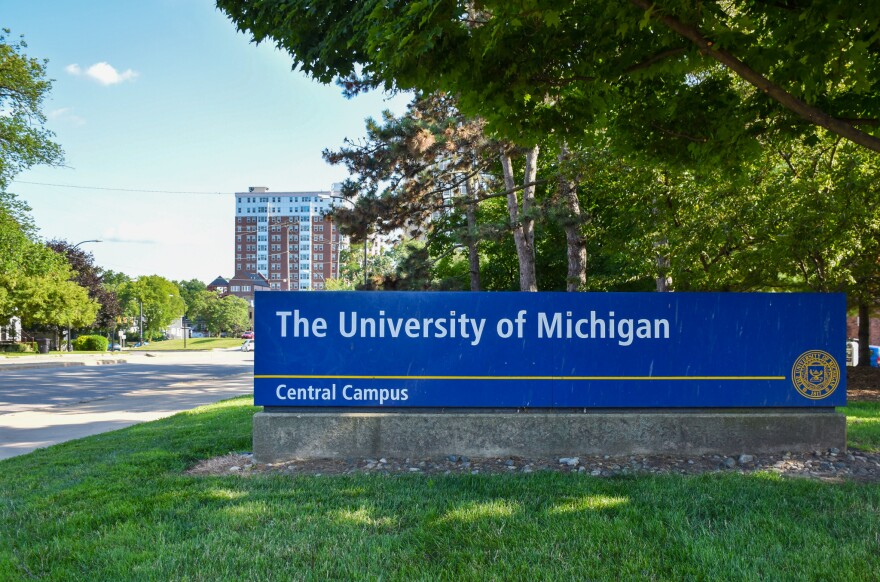Even as some colleges and universities blame students for hosting off-campus parties and contributing to the risk of COVID-19 spreading on campus, Dr. Preeti Malani believes administrators can rely on students to follow public health advice to prevent outbreaks that could lead to the cancellation of in-person classes.
Malani is the Chief Health Officer and a professor in the division of infectious diseases at the University of Michigan. Her recent op-ed in The New York Times is a sort of instruction manual telling college students how to mitigate the risk of spreading coronavirus this fall.
But can universities really rely on young people to make the right (public health-informed) choices?
“I feel that they can, especially if they’re given guidance...to reframe things they can do (safely),” Malani says. “When we talk about a public health-informed semester it doesn’t mean zero risk of cases of COVID-19...students are going to have to step up and help each other through this.”
U of M is offering a hybrid approach to learning this fall, with some in-person instruction available and enough remote classes that it says most students will be able to choose whether to attend in Ann Arbor or attend all classes remotely.
Malani definitely expects to see an increase in cases of COVID-19 on U of M's Ann Arbor campus once students move in and classes resume. Her hope is that asking students to “step up” can keep the increase in case numbers at “an acceptable level," but she says too much of an increase in cases on campus could cause the cancellation of in-person classes.
A lot of what it takes to stay safe on campus, Malani says, goes back to what people have been told to do for months: wash their hands frequently, wear masks, stay outside as much as possible, and hang out in small groups.
One of the biggest challenges for higher-ed administrators to address is the risk of transmission of coronavirus at off-campus parties and hang outs.
On some other campuses, students are already being blamed for hosting parties and large gatherings. The Central Michigan University student newspaper CM Life reports CMU Associate Vice President for Student Affairs Tony Voisin sent an email to students on August 21 threatening to “fine or even suspend individuals who host or attend large gatherings.”
Michigan State University last week abruptly decided to cancel plans for in-person instruction and is asking undergraduates not to come to campus and instead take class virtually from home.
U of M’s Coronavirus data dashboard shows a testing positivity rate of 1.1% over the past 14 days.
What are the indicators of coronavirus spread Malani will be keeping an eye on?
“There’s going to be a constant trickle of (new coronavirus) cases,” Malani says. “What we don’t want to see is a big rise. It’s less about an absolute number but more about where that trend is going … The other thing that’s so important is the percentage positive of tests. We want to see that number stay very very low.”
What could change at U of M if new cases exceed “acceptable” levels?
“What could happen is we might halt or pause in person classes,” Malani says. “I’m hopeful we aren’t going to get to that. There are going to be cases, but our hope is to take care of everyone, really ask the students to step up, and that we do our best and reframe what our expectations are this semester.”






